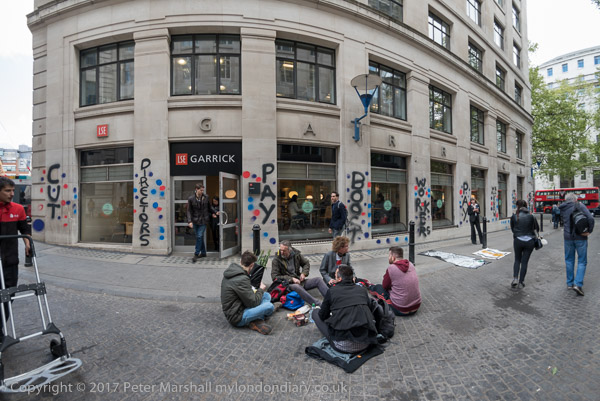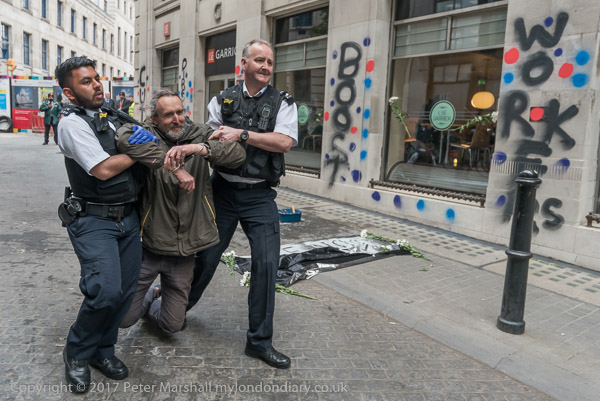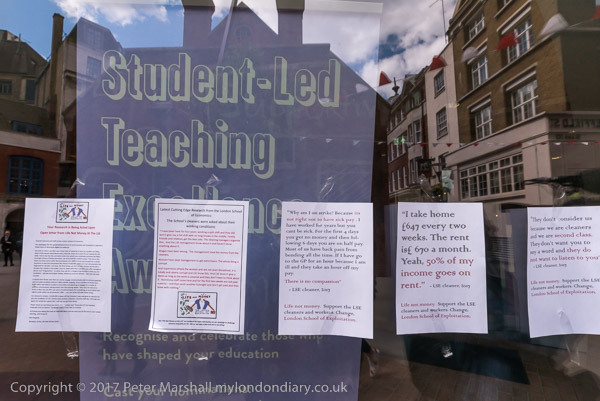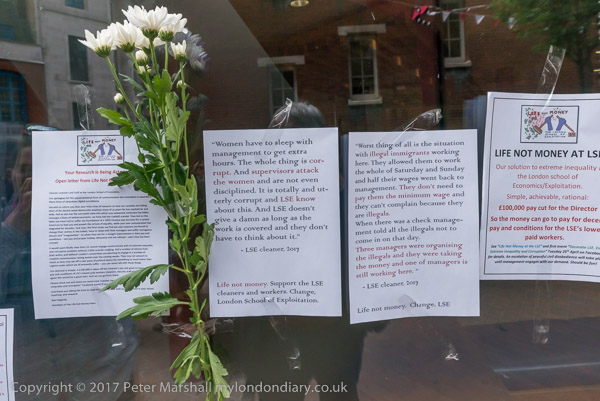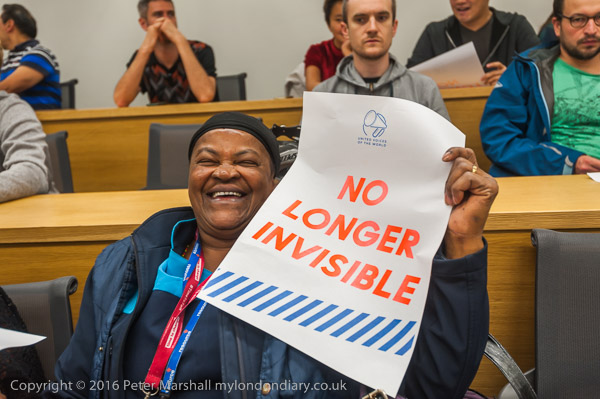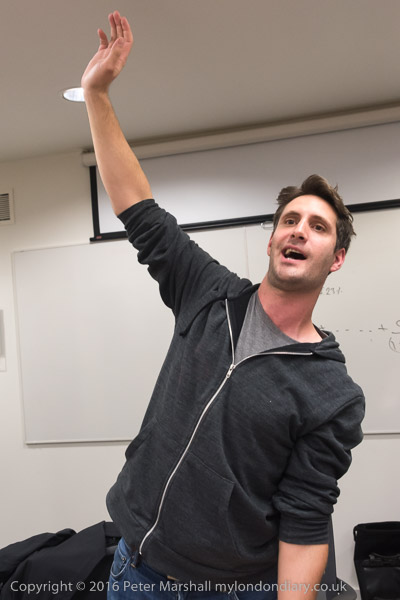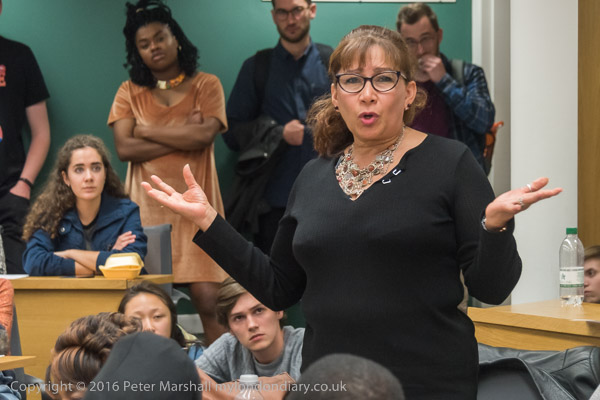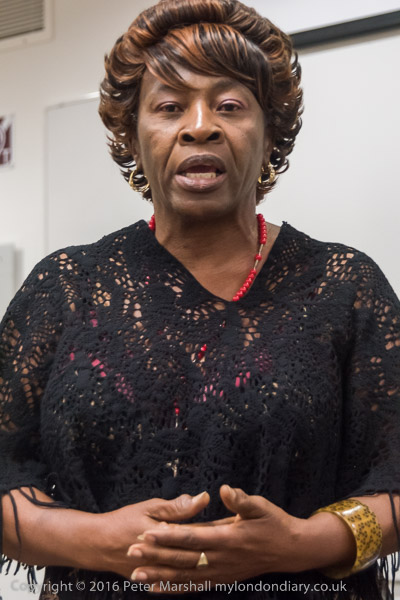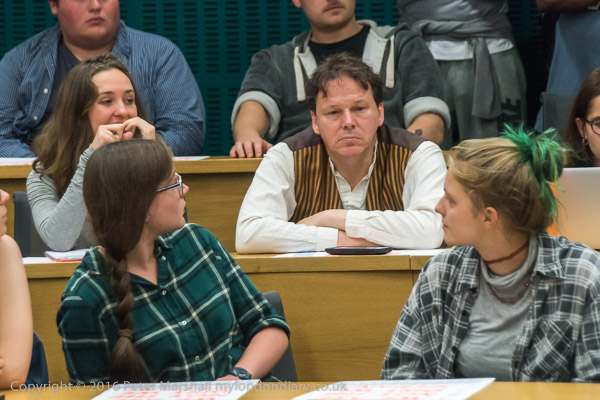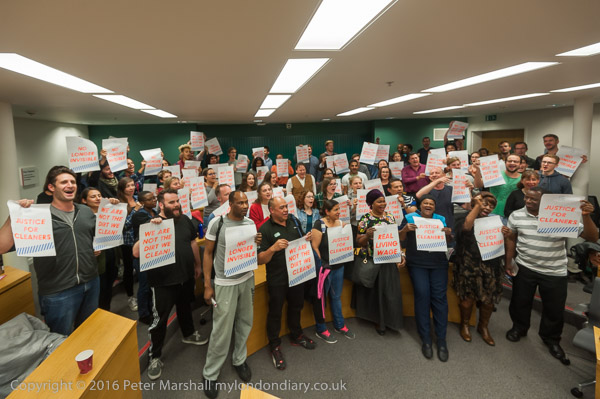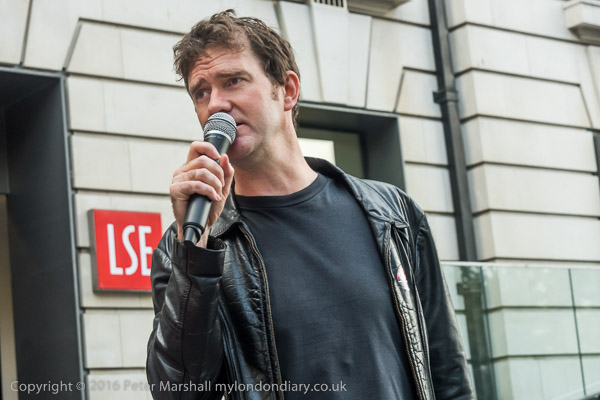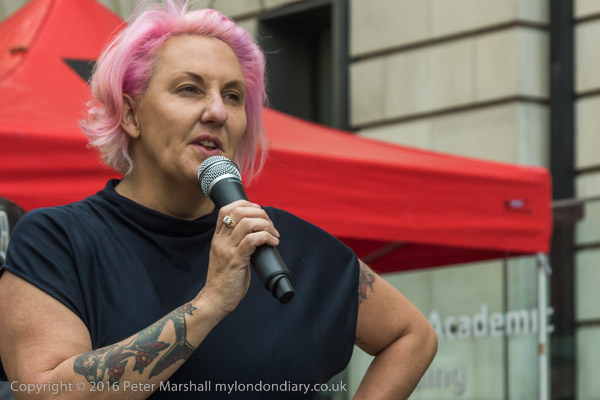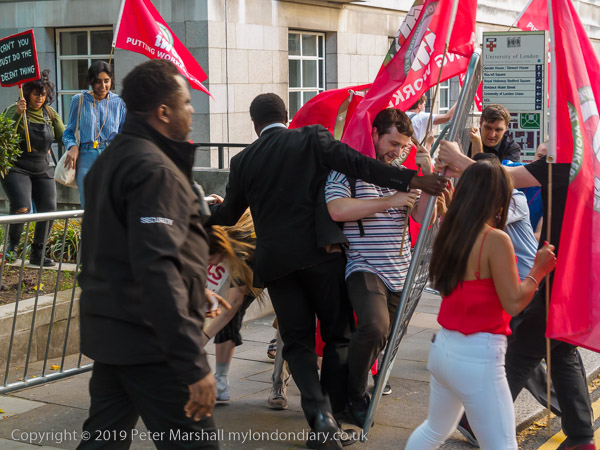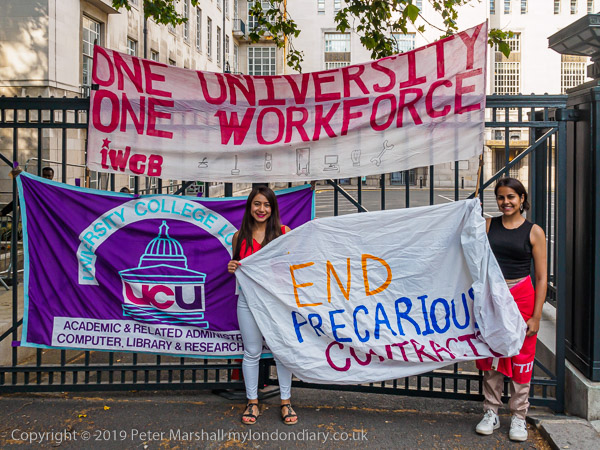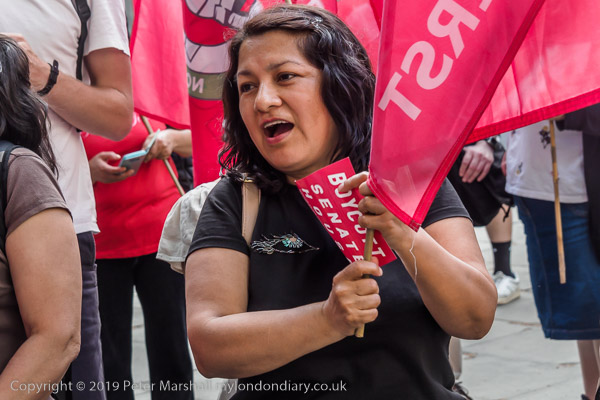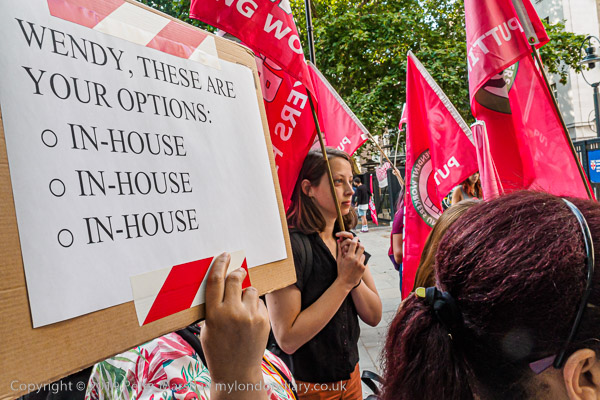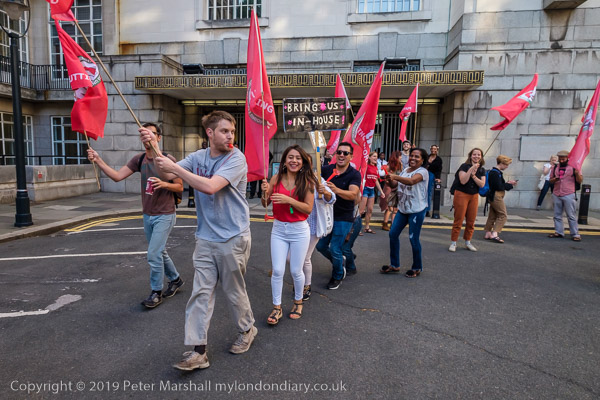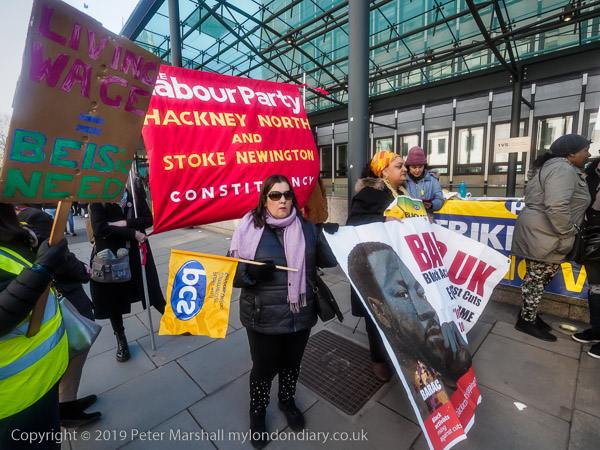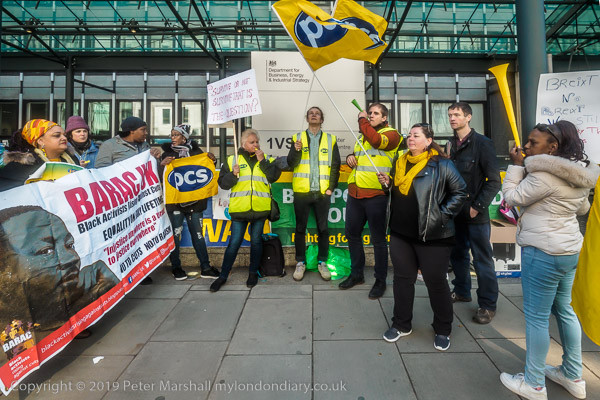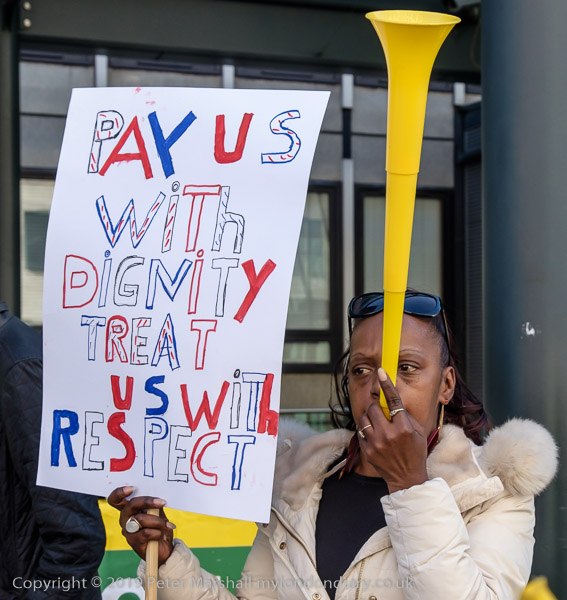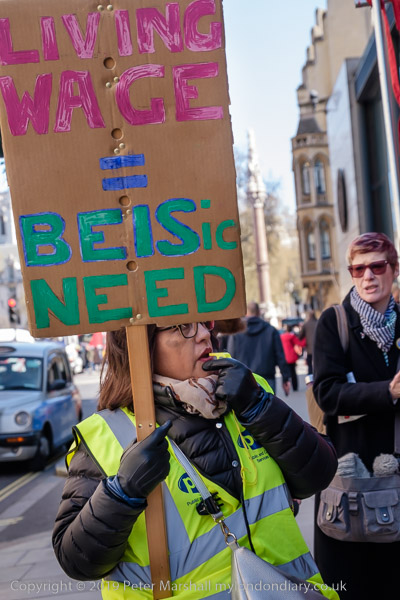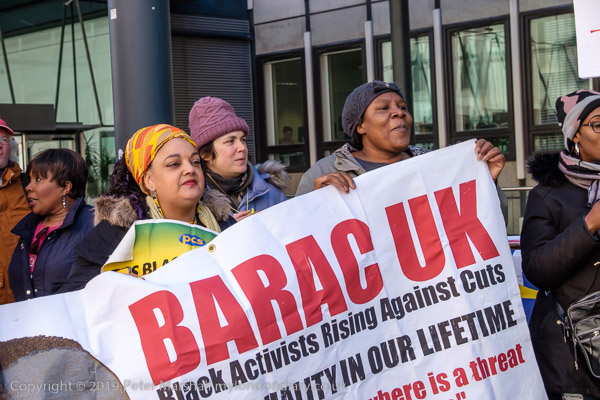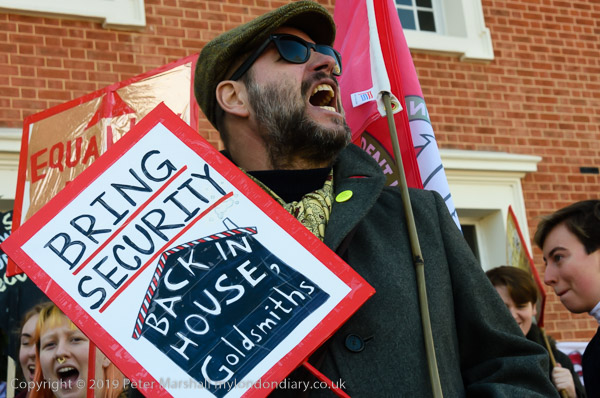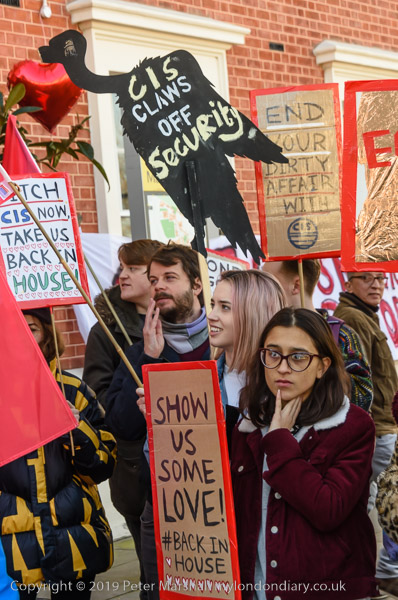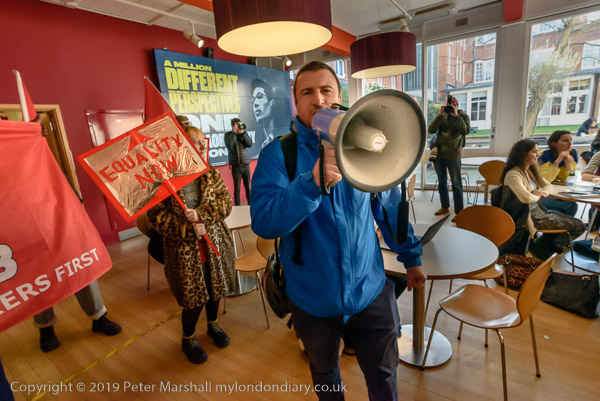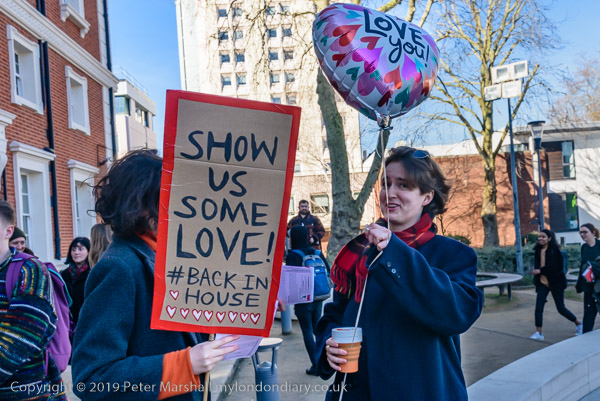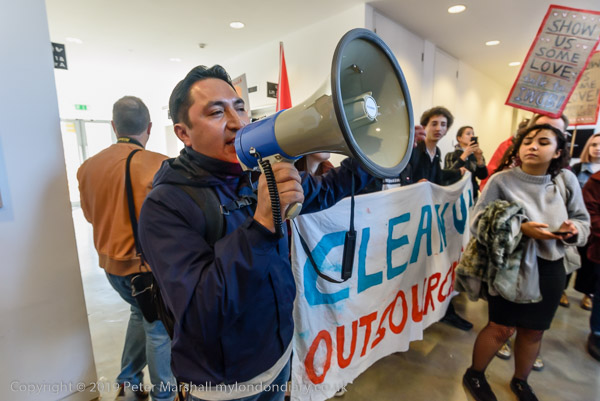Barts NHS Cleaners march against Serco: On Saturday 15th July 2017 a rally and march in Whitechapel follow five days of strike by cleaners and porters at the Royal London Hospital and the other East London hospitals in the Barts NHS Trust – Mile End Hospital, Newham University Hospital, St Bartholomew’s Hospital and Whipps Cross University Hospital.
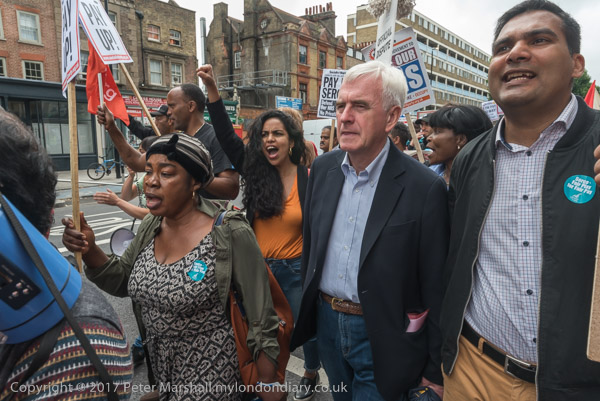
Cleaning, portering, laundry, cleaning and security services were outsourced to Serco in 2017 and the workers involved immediately found their conditions being adversely affected. Serco’s first action was to write to them telling they were no longer allowed paid tea breaks; the workers sat in the canteen and refused to move before these were re-instated. But they accused Serco of increasing stress and workload with a climate of bullying, intimidation and fear and a failure to set up procedures for reporting problems with facilities and other issues.
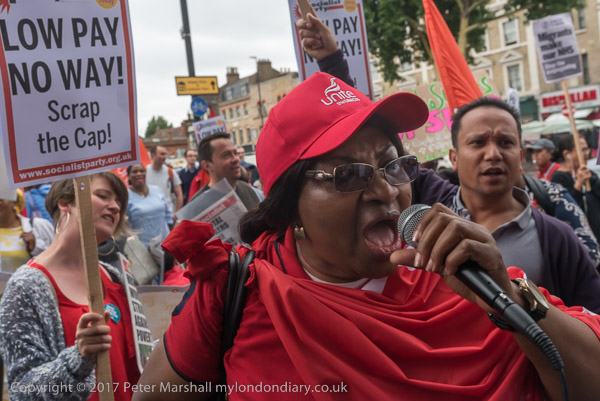
When Serco refused a Unite claim for 30p per hour in line with inflation and cost of living increases in London the workers voted 99% in favour of strike action. Serco illegally brought in poorly trained agency workers to replace them and on the strike days conditions became unsanitary and many patients did not get hot meals.

Barts Trust had put these services out to tender to save money they needed to pay out £2.4million a week because of a disastrous PFI contract made under New Labour. Although It had provided a much-needed new hospital completed in 2016 but with two floors Barts didn’t have the money to fit out, it left them paying these huge sums long into the future. But Barts were attempting to save money at the expense of their workers and endangering patients.
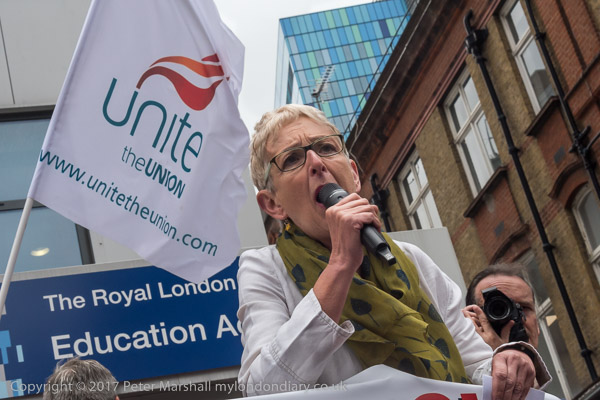
The protest began on the busy street outside the old Royal London buildings but there were soon too many for the pavement here and we moved around to the side of the hospital for a rally, where speakers including Gail Cartmel of Unite, John McDonnell, then Shadow Chancellor and Unite pickets and other trade unionists including Victor Ramirez of United Voices of the World who spoke forcefully in Spanish – the first language of many of the cleaners – spoke from a balcony above the crowd – and I was able to take some pictures. Some brought greetings and support from other unions.
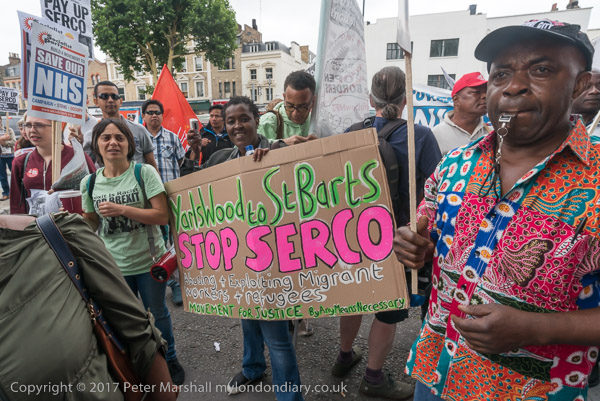
Serco employ mainly migrant workers in other public sector workplaces as well as running immigration prisons such as Yarl’s Wood where migrant women and families are daily repressed and subject to physical and sexual abuse and some had come to support the Barts workers and also to protest against their activities elsewhere.

Eventually the marchers formed up behind the banner and made there way along Mile End Road to another rally in a small park close to Mile End Hospital, where there were a few more speakers before we all dispersed.

Back in 2003 I’d spent time in several hospitals and had experienced a clear difference between the standards of cleaning and food between those with contracted out cleaners who were allowed insufficient time to clean the wards and one where the cleaners were still a part of the hospital team. It was the difference between dirt and used needles under my bed and a spotless shiny floor.
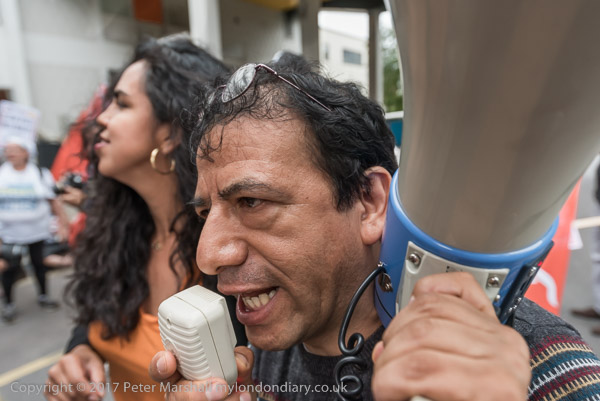
Protests continued at Barts and in 2023 Serco withdrew early from the contract. Both Unite and Unison claimed victory for the decision by Barts to directly employ the workers under the same conditions as other existing staff.

Labour in opposition were clearly opposed to outsourcing particularly in the public services and promising to outlaw it, but the Employment Rights Bill Implementation Roadmap published this month seems to have drawn back from the earlier promise and contains no explicit reference to outsourcing.

I was pleased with the photographs I had been able to make at the event and as well as the few here there are many more you can see on My London Diary at Barts NHS Cleaners march against Serco.
Flickr – Facebook – My London Diary – Hull Photos – Lea Valley – Paris
London’s Industrial Heritage – London Photos
All photographs on this page are copyright © Peter Marshall.
Contact me to buy prints or licence to reproduce.
